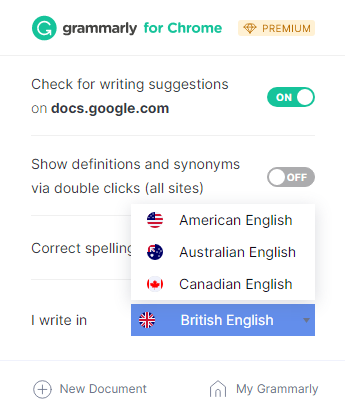
We’re proud of how our community of transcribers is mastering their craft.
Now, if you’re new to transcription, you must know that you will encounter some challenges, especially at the beginning of your career.
One of the challenges you will face is dealing with highly-difficult files that include non-American accents (e.g., British, Australian, Hispanic, Native American, Indian, Asian, African, and European).
Currently, Scribie focuses on American English but also covers Canadian, British, and Australian English styles for transcripts.
Every now and then, you can expect that some customers will require their files to be transcribed in particular ways, like using British English spelling. This type of request may leave you overwhelmed at first.
Don’t worry as we’re here to give you some tips to help you transcribe efficiently!
British English vs. American English
As pointed out by British Council Foundation, British and American English can be different in several ways, such as:
Spelling
Spelling differences typically cause confusion. To make it simple, there are three rules you can follow, according to Learners Dictionary.
- Most words ending in -our in British English are spelled without the u in American English (humour/humor, behaviour/behavior, etc.)
- Most words ending in -re in British English are spelled with -er in American English (centre/center, litre/liter, etc.)
- Many British English verbs ending in -ise are spelled with -ize in American English (realise/realize, organise/organize, etc.)
The differences don’t end with spelling, though…
Vocabulary
To add, it’s worth understanding the variation in terms of the choice of words. Hundreds of everyday terminologies tend to be different.
Brits might refer to fries as chips. They’d also refer to an apartment as a flat.
You would usually guess the meaning of the word through the context of a sentence.
Grammar
Lastly, there are also grammar differences.
OneStopEnglish outlines the differences in sentences that talk about a past action that has a present effect:
- In American English: Jenny feels ill. She ate too much.
- In British English: Jenny feels ill. She’s eaten too much.
There are also differences in terms of prepositions. According to Cambridge Dictionary, British English prefers at the weekend while the American counterpart prefers on the weekend.
Scribie Tools and Tips for You
While understanding the difference between the spellings of American and British languages can be overwhelming, there are few resources and things you can do to work around this.
Do your research.
One of the skills you need to have as a Scribie transcriber is to know how to do your own research. You’re not expected to know everything, and Google will be your best tool to work on unfamiliar words or terms.
Test third-party spell checker tools.
There are many spell checker tools available online such as Grammarly and Language Tool, that will make it easier for you to check spellings.
Make use of Scribie’s Integrated Editor.
Of course, Scribie won’t leave you hanging. The Integrated Editor aims to make the work more manageable, and it has some essential features that make it easy to check the transcript against the audio.
This includes keyboard shortcuts to faster editing, variable rate playback.
Like the third-party tools, the spellcheck feature provides you with suggestions to autocorrect any potential spelling mistakes.

Avoid context switching.
Focus on one task at a time and don’t alternate between transcribing and editing.
Setting your tool to spellcheck in British will save you a lot of time as you transcribe as it will automatically flag up any words that you have inadvertently spelled the wrong way and you can later work on the edits.
If you’re using LanguageTool or Grammarly Chrome Extension on Google Docs or Microsoft Word, make sure that you select the British English language.

Just a note on using spelling check tools, do not be tempted to correct the grammar even if the tool is prompting you, You would only want to refer to these tools for the correct spelling only.
Over To You
Scribie is known for accurate transcripts that only professional (human) transcribers can provide. Without its transcribers, the context of transcripts will not be precise as it should be.
We do our best to provide customer requests, and we’re really good at it.
It may sound like managing American or British spelling is challenging, but it is not as bad as it sounds.
Don’t be afraid to use your resources, including Scribie’s community.
Got some tips to share? Join the transcription team and be part of the Slack community.


This would help them to better understand the difference between British English vs. American English. It is very important to know the difference between them especially for the transcribers. Thanks @scribie for sharing it.